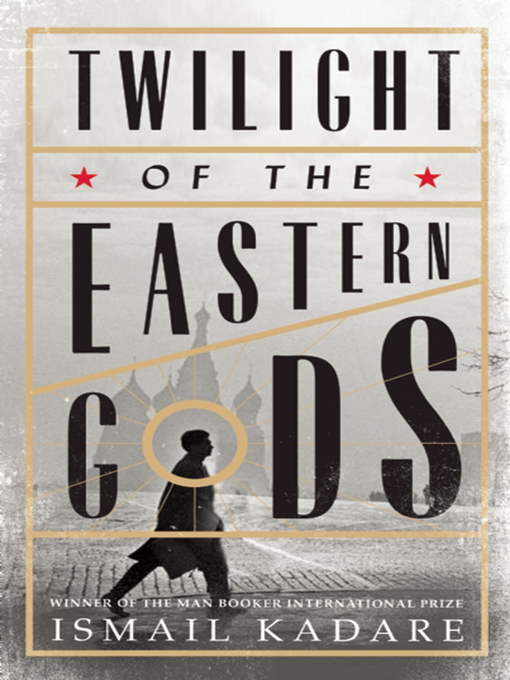In 1958, Kadare was selected to pursue his writing and literary studies as a graduate student in Moscow at the prestigious Gorky Institute for World Literature. Twilight of the Eastern Gods is Kadare's fictionalized recreation of his time spent at this "factory of the intellect," a place created to produce a new generation of poets, novelists, and playwrights, all adhering to the state-sanctioned “socialist realist" aesthetic.
During his time at the Gorky Institute, a kind of miniature Soviet Union where writers from deepest Siberia, Kazakhstan, and the Caucasus all came to study, Kadare was caught up in the furore over Boris Pasternak's Nobel Prize win, when the Soviet Union demanded that Pasternak refuse the foreign, bourgeois award, or be sentenced to exile. Kadare's time at the Institute, the drunken nights, corrupt professors, and enforced aesthetics are fictionalized in a novel that entwines Russian and Albanian myth with history. Twilight of the Eastern Gods is a portrait of a city and a story of youth, disenchantment, and the incredible importance of the written word.
- New eBook additions
- Available now
- New kids additions
- New teen additions
- Most popular
- Try something different
- See all ebooks collections
- The Audie Awards
- New audiobook additions
- Available now
- New kids additions
- New teen additions
- Most popular
- Try something different
- See all audiobooks collections
- All Magazines
- Most Popular
- Cooking & Food
- Entertainment
- Home & Garden
- News & Politics
- Newest Editions
- Magazines
- For Adults
- For Kids
- Health & Fitness
- Fashion
- Hobbies & Crafts
- See all magazines collections


